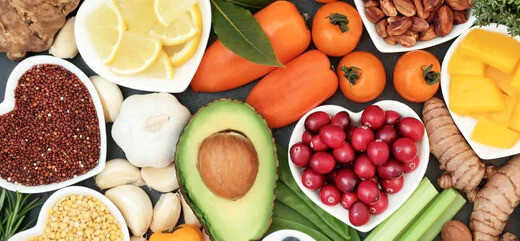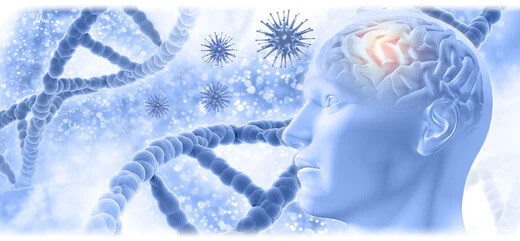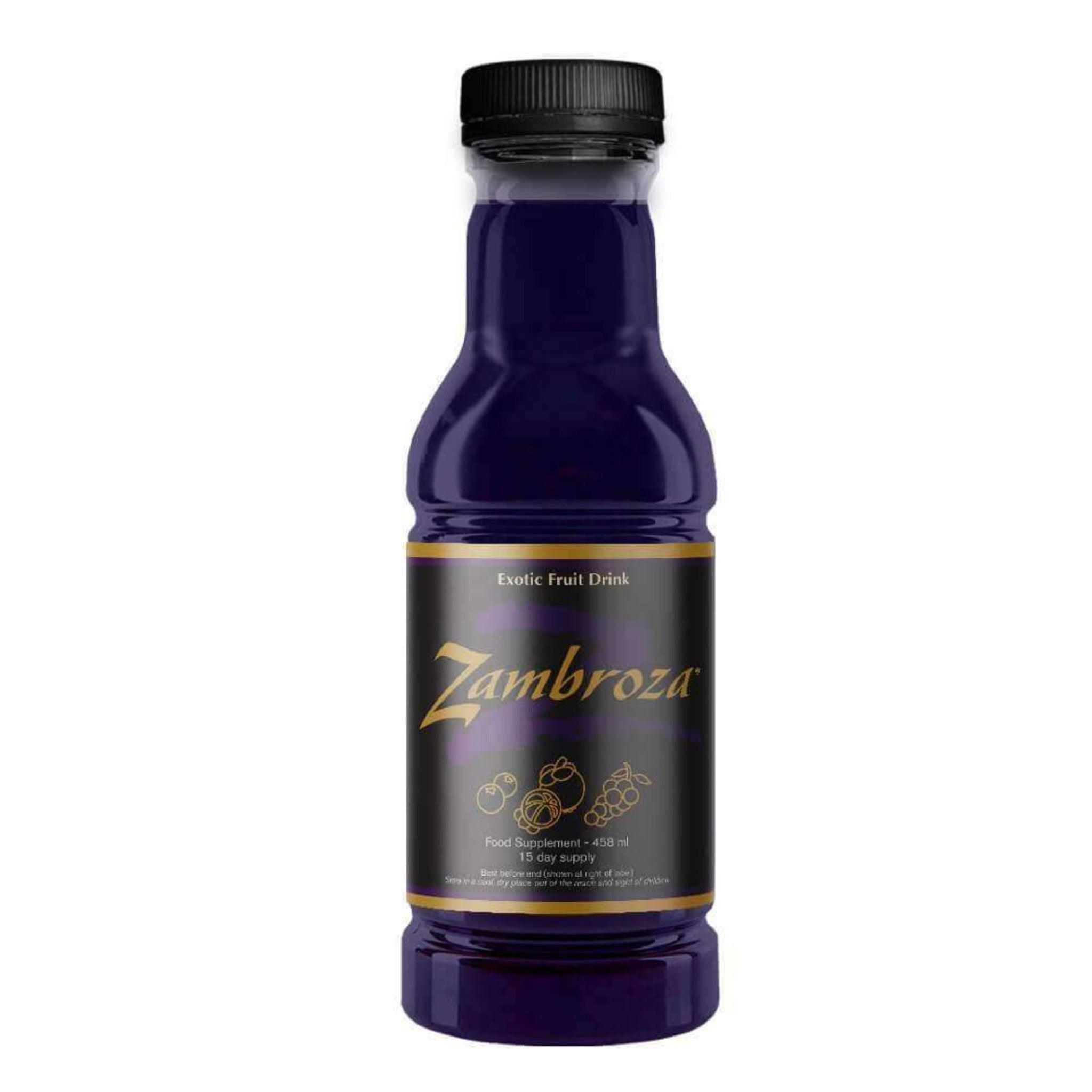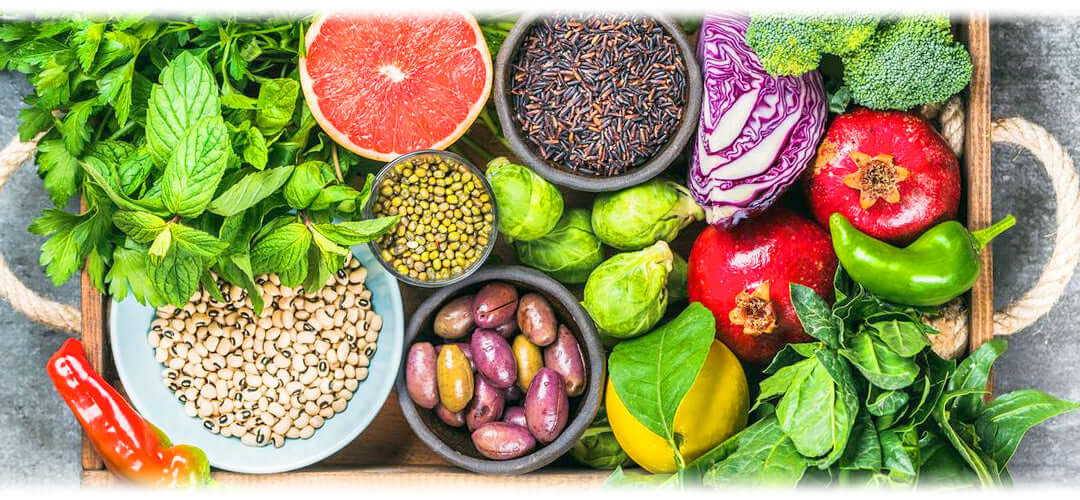
When we think of maintaining our health and wellbeing, many of us focus on cleaning up our diets and eating more healthily.
After all, the nutrients we get from food are essential for the body to function.
While cutting out junk food and getting more vitamins and minerals are usually the first things people think of when it comes to healthy eating, there’s a category of nutrients that is just as important: antioxidants. Antioxidants are molecules that protect cells from damage. They do this by neutralising harmful chemicals called free radicals. Free radicals form when oxygen interacts with other molecules in the body, and they can cause serious damage if left unchecked.(1) Antioxidants come from a variety of sources, including fruits, vegetables and herbs. And while you can get them from food, you can also take them as supplements.

WHY ARE ANTIOXIDANTS IMPORTANT?
A healthy intake of fruits and vegetables is essential to maintaining a strong immune system that can combat dangerous diseases. That’s because the antioxidants in fruits and vegetables help prevent cell damage.(2) Fruits and vegetables also contain high levels of anti-inflammatory compounds called phytochemicals which can lower the risk of stroke, heart disease, arthritis and other chronic illnesses.(3)
For example, Vitamin C provides protection against cell damage by helping the body absorb iron and produce the essential protein haemoglobin.(4) It is needed for the body to produce collagen which contributes to elasticity and blood vessel strength. (5) Vegetables can also have a dramatic effect on your health and wellbeing. The human body needs a constant supply of glucose to function properly, yet modern diets too often rely on refined carbohydrates for energy. This can lead to insulin resistance, diabetes, obesity and heart disease.(6) A diet rich in whole grains, legumes, fruits and veggies is recommended for optimal health.
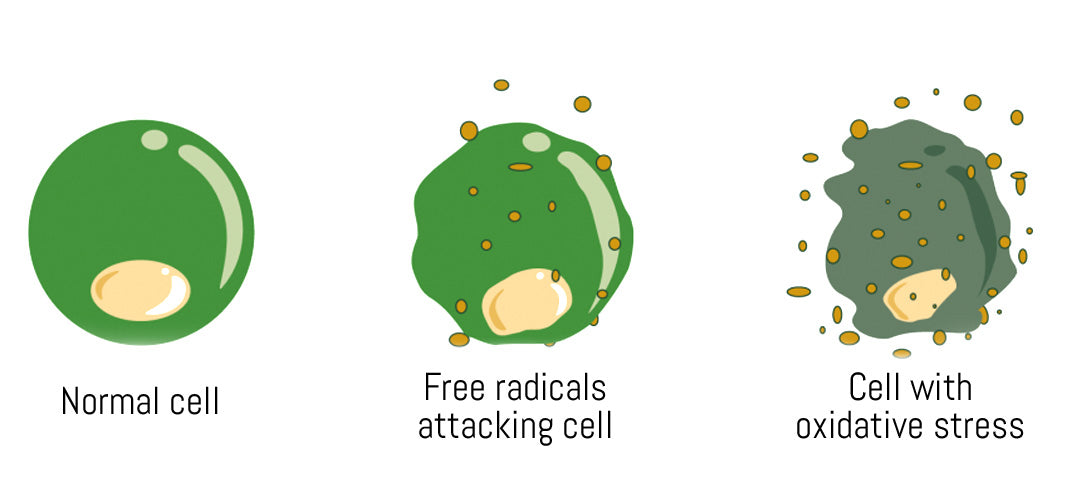 WHAT IS OXIDATIVE STRESS?
WHAT IS OXIDATIVE STRESS?
As we said above, antioxidants are substances that neutralise free radicals that do damage to your cells through oxidative stress. Oxidation is the process by which oxygen reacts with molecules in the body to form free radicals, which lead to damage and cell death. Antioxidants are molecules that can donate a single electron to an unstable free radical, thus neutralising it and stabilising the surrounding molecules.(1)
Oxidation is a normal, often unavoidable by-product of oxygen in your body or the environment. It plays a role in the ageing process and is a major factor that causes disease.(7)
The human body produces enzymes that act as natural antioxidants, including superoxide dismutase, catalase and glutathione peroxidase.(8) However, these do not work fast enough to protect against all oxidative stressors, so getting additional antioxidants nutrients like vitamins A, C and E, along with beta carotene, selenium, zinc, copper, manganese, and others, helps top up any natural shortfall.
HEALTH BENEFITS OF ANTIOXIDANTS
In our daily lives, we are exposed to a wide range of potentially harmful chemicals and artificial compounds. These include dust, smog and other gases in the air we breathe, pollutants in the water we drink, pesticides on our fruits and vegetables, and the preservatives used in many of our foods. That’s before you start counting things like caffeine, alcohol, refined sugar, cigarette smoke, trans fats and other substances that can be harmful to your health, especially if used in excess.
What's more, potentially harmful compounds can also be found in food additives, artificial sweeteners, cosmetics and other products you may use daily.
Some studies have shown that people who eat more fruits and vegetables tend to live longer than those who don’t. That’s because certain nutrients found in plant-based food may help protect against certain chronic health conditions.(9) In addition, research suggests that a diet rich in antioxidants may lower rates of asthma attacks and allergies.(10)
So, while it’s important for us all to be aware of what we’re putting into our bodies, it’s equally as important to know how much of this stuff we need. 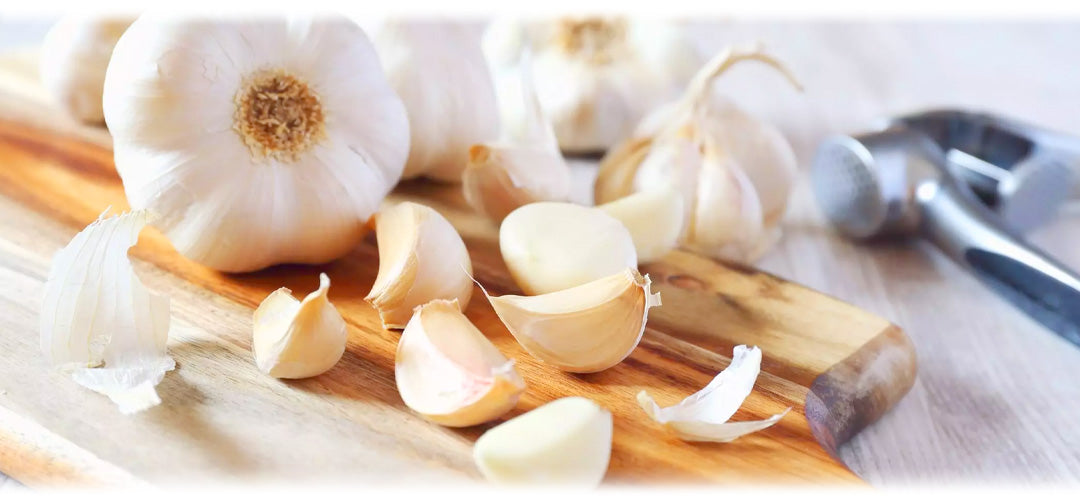
TOP FOOD SOURCES OF ANTIOXIDANTS
Antioxidants are chemicals that slow the oxidation of other molecules. The presence of antioxidants in our bodies allows our cells to function properly. Antioxidants are part of the electron transport chain, a series of biochemical reactions that are crucial to life.(11) Some important antioxidants include Vitamin C, glutathione, and selenium.
There is no single antioxidant that can protect against every type of oxidative damage. Instead, there are many different types of antioxidants with varying degrees of effectiveness at protecting against specific kinds of cell injury. For example, Vitamin E protects membranes from lipid peroxidation but does not prevent DNA or protein damage.(12) And the antioxidant vitamin A is known to promote lung, heart and skin health. (13)
The best way to get the most benefit from these nutrients is through a healthy diet rich in fruits, vegetables, whole-grains and other important nutrients. However, it’s important to remember that even though they may help reduce your risk of disease, these nutrients cannot cure you if you already have an illness. They can only help protect you from further harm.
Some of the most common antioxidants found in food include Vitamin C, Vitamin E, beta carotene, selenium, zinc, copper, manganese, iron, folic acid, niacin, riboflavin, thiamine, pantothenic acid, biotin and coenzyme Q10. You should look out for these when checking the labels of your favourite foods, or opt for natural supplements which are high in them. Other antioxidants to look out for include ascorbic acid, acetylcysteine, pycnogenol, green tea extract, grape seed extract, L-Carnitine, Omega 3 fatty acids and folic acid.
While many fruits and vegetables are high in natural antioxidants, herbs and spices such as garlic, ginger, turmeric, cinnamon, rosemary, oregano and basil are also great ingredients to add to any home-cooked dishes to supercharge your antioxidant intake.(14) Maintaining a healthy diet, which includes a variety of differently coloured fruit and vegetables, will ensure you get a good mix of antioxidants from your food. However, if you are concerned your diet might not be giving you the antioxidants you need, Lily & Loaf can help.
Our range of natural supplements has been designed to complement your diet and help you make up any nutritional shortfalls. They include essential vitamins, minerals and other nutrients that have antioxidant properties, to boost your immune system and maintain your other essential body functions.
Check out these links to our products and collections to find out more:
Disclaimer:
Information and other content provided in Lily & Loaf blogs should not be construed as medical advice and should not be considered a substitute for professional medical expertise. If you have any medical concerns, you should consult with your health care provider.
 |
FACT CHECKEDBrittany Lubeck, MS, RDN
|
References
-
Chaudhary P, Janmeda P, Docea AO, et al. Oxidative stress, free radicals and antioxidants: potential crosstalk in the pathophysiology of human diseases. Front Chem. 2023;11:1158198. doi:10.3389/fchem.2023.1158198
-
Sharifi-Rad M, Anil Kumar NV, Zucca P, et al. Lifestyle, Oxidative Stress, and Antioxidants: Back and Forth in the Pathophysiology of Chronic Diseases. Front Physiol. 2020;11:694. doi:10.3389/fphys.2020.00694
-
Kumar A, P N, Kumar M, et al. Major Phytochemicals: Recent Advances in Health Benefits and Extraction Method. Molecules. 2023;28(2):887.Published 2023 Jan 16. doi:10.3390/molecules28020887
-
Li N, Zhao G, Wu W, et al. The Efficacy and Safety of Vitamin C for Iron Supplementation in Adult Patients With Iron Deficiency Anemia: A Randomized Clinical Trial. JAMA Netw Open. 2020;3(11):e2023644. doi:10.1001/jamanetworkopen.2020.23644
-
DePhillipo NN, Aman ZS, Kennedy MI, Begley JP, Moatshe G, LaPrade RF. Efficacy of Vitamin C Supplementation on Collagen Synthesis and Oxidative Stress After Musculoskeletal Injuries: A Systematic Review. Orthop J Sports Med. 2018;6(10):2325967118804544. Published 2018 Oct 25. doi:10.1177/2325967118804544
-
Clemente-Suárez VJ, Mielgo-Ayuso J, Martín-Rodríguez A, Ramos-Campo DJ, Redondo-Flórez L, Tornero-Aguilera JF. The Burden of Carbohydrates in Health and Disease. Nutrients. 2022;14(18):3809. doi:10.3390/nu14183809
-
Maldonado E, Morales-Pison S, Urbina F, Solari A. Aging Hallmarks and the Role of Oxidative Stress. Antioxidants (Basel). 2023;12(3):651. doi:10.3390/antiox12030651
-
Jeeva JS, Sunitha J, Ananthalakshmi R, Rajkumari S, Ramesh M, Krishnan R. Enzymatic antioxidants and its role in oral diseases. J Pharm Bioallied Sci. 2015;7(Suppl 2):S331-S333. doi:10.4103/0975-7406.163438
-
Wang X, Ouyang Y, Liu J, et al. Fruit and vegetable consumption and mortality from all causes, cardiovascular disease, and cancer: systematic review and dose-response meta-analysis of prospective cohort studies [published correction appears in BMJ. 2014;349:5472]. BMJ. 2014;349:g4490. doi:10.1136/bmj.g4490
-
Moreno-Macias H, Romieu I. Effects of antioxidant supplements and nutrients on patients with asthma and allergies. J Allergy Clin Immunol. 2014;133(5):1237-1245. doi:10.1016/j.jaci.2014.03.020
-
Onukwufor JO, Berry BJ, Wojtovich AP. Physiologic Implications of Reactive Oxygen Species Production by Mitochondrial Complex I Reverse Electron Transport. Antioxidants (Basel). 2019;8(8):285. doi:10.3390/antiox8080285
-
Niki E. Evidence for beneficial effects of vitamin E. Korean J Intern Med. 2015;30(5):571-579. doi:10.3904/kjim.2015.30.5.571
-
National Institutes of Health - Office of Dietary Supplements. Vitamin A and Carotenoids.
-
Yashin A, Yashin Y, Xia X, Nemzer B. Antioxidant Activity of Spices and Their Impact on Human Health: A Review. Antioxidants (Basel). 2017;6(3):70. doi:10.3390/antiox6030070




